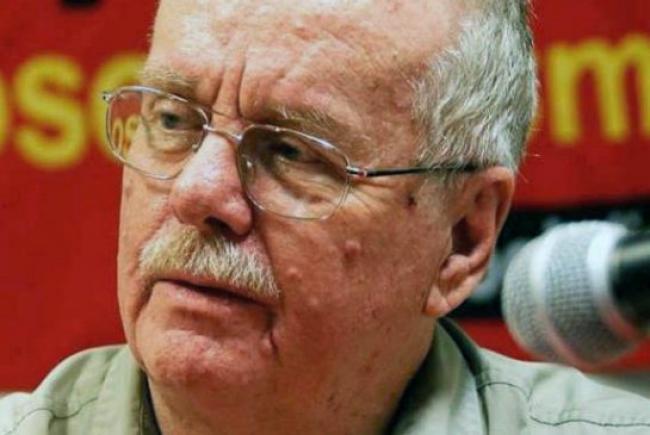Articles Menu

The stable climate of the last 12,000 years is over, warns an author visiting B.C. this week. But will human civilization survive the new age?
Welcome to the Anthropocene.
On Aug. 29, geologists on a high-level international working group voted 30 to three to officially declare our time an entirely new geological epoch — one in which humans have “profoundly” affected almost every single system on our planet.
Markers of the new era include radioactive fallout from 1950s hydrogen bomb tests, climate change, mining the Earth’s crust and widespread agriculture, according to the International Commission on Stratigraphy’s Working Group on the Anthropocene.
Now, the author of a new book on the proposed epoch is in the Lower Mainland this week to speak at three local universities about the subject.
“The Anthropocene is an epoch that is not official yet but it’s getting awfully close,” Ian Angus, the Ontario-based editor of the online journal Climate and Capitalism, told Metro in a phone interview. “The last time a new epoch was put on the chart, it marked the retreat of the glaciers 12,000 years ago.
“That led to the circumstances in which agriculture was developed independently in various places around the world, and in which civilizations could develop.”
That stable, post-Ice Age epoch geologists call the Holocene.
After addressing students at the University of B.C. on Tuesday, Angus is set to speak at Surrey’s Kwantlen Polytechnic University on Wednesday, and the evening after atSimon Fraser University’s Woodwards facility.
He’s hoping to clear up some popular misconceptions about the concept, notably the myth that it’s about humans affecting our planet.
“Our species, pretty much by nature, has been changing the planet since we came down from the trees, or invented agriculture or hunting,” he explained. “But those are not shifts in the Earth system as such.
“It’s only recently that our activity has affected very fundamental things about the way the planet works.”
He said he’s been following the debate over the Anthropocene concept for several decades, but it only recently surged into the public consciousness.
“To be honest, you couldn’t get away from this subject if you followed the science,” he said. “The word came into being around 2000, but for a while it was only in very specialized journals … Suddenly, it’s in an awful lot of places.”
Kwantlen Polytechnic University geographer Bill Burgess said the idea of a new epoch dawning isn’t new, but that debate has been over when exactly it started — sometime in the mid-20th century, likely after the first hydrogen bomb test when nuclear fallout was dispersed across the entire globe, though that is merely a measurable sign. Other signs include the rapid upswing in greenhouse gases since the end of World War II.
“We seem to have crossed some kind of tipping point,” he told Metro in a phone interview. “We’ve enjoyed 12,000 years of relative stability, it’s been good for us. We can no longer anticipate that.”
Burgess illustrated the concept with an analogy: just as the human body can regulate its own temperature within a safe range — releasing sweat to cool the skin, for example — “what’s happening is we’re now adjusting and affecting some of (the planet’s) natural regulating systems.
“We don’t know what kind of new equilibrium may be reached. It’s unknown territory … This is the uncertainty that we face, and it’s very worrisome.”
Angus said ever since people started digging up coal two centuries ago, and later oil, the entire economy has revolved around fossil fuels, “burning in very rapid order what took millions of years to create,” he said, and changing Earth’s systems for regulating carbon dioxide, nitrogen, phosphorous and other elements.
But Angus insisted he remains hopeful that humans can try to bring the climate within liveable levels by rapidly ending fossil fuel consumption — though we can’t turn back the dawning of the epoch.
“But in an economy built on having that source of energy, you can’t name an industry that’s not based on them,” he cautioned. “It is not a trivial problem.
“But we can organize people to change what we can change now. If we fight this thing, we could well lose. But if we don’t try it, we’re guaranteed to lose. I don’t see there’s a choice in this.”
Angus will speak on his book Facing the Anthropocene: Fossil Capitalism and the Crisis of the Earth System at 4 p.m. Wednesday at Kwantlen Polytechnic University(Fir Building room 128), and 7 p.m. Thursday at SFU Woodwards (149 West Hastings St.).
[Top photo:Ian Angus, author of Facing the Anthropocene: Fossil Capitalism and the Crisis of the Earth System.]